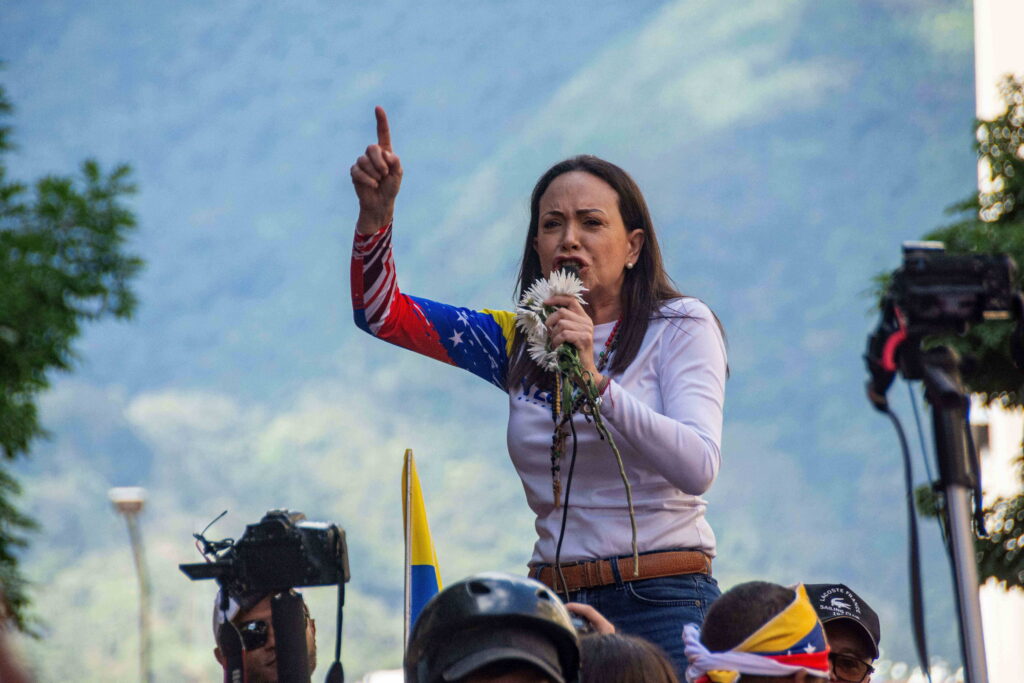Venezuelan politician Maria Corina Machado has scooped this year’s Nobel Peace Prize – but who is she and why has she taken the prestigious award?

The Nobel Peace Prize a hugely significant yearly award given out by a Norwegian committee on behalf of the estate of Alfred Nobel. It is given to a person – or people or organisations – who have been judged to have made an outstanding contribution to peace, arms reduction, international cooperation and human rights and democracy.
Over the years, it has been won by such luminaries as Barack Obama, Jimmy Carter and Martin Luther King Jr.
This year’s recipient has been named as Maria Corina Machado, the leader of the opposition in Venezuela and a pro-democracy activist. The Nobel Committee said Maria was “one of the most extraordinary examples of civilian courage in Latin America in recent times” and praised for her “tireless work promoting democratic rights for the people of Venezuela.
But who is Maria Corina Machado? Here is what you need to know:
Caring for children
Born in 1967, Maria first came to attention in 1992, when she set up the Atenea Foundation, which used private donations to care for orphaned and delinquent street children in Caracas. She left this organisation in 2001.
Sumate
Maria left the Atenea Foundation when she co-founded Sumate, a volunteer civil organisation alongside Alejandro Plaz, in response to concerns about the direction Venezuela was heading in.
Sumate led a petition in 2004 for a referendum on whether then-president Hugo Chavez should be recalled from office. However, the referendum went in Chavez’ favour and Maria and others from Sumate were charged with treason and conspiracy for receiving financial support from the National Endowment for Democracy. But the charges were condemned by Human Rights Watch and the US Department of State. The trial of Maria and others was suspended in 2006 and has been postponed indefinitely.
National Assembly
In 2010, Maria left Sumate to pursue election to the National Assembly of Venezuela, as a member of the Justice First party member of the Coalition for Democratic Unity – which was in opposition to president Chavez.
Despite facing government-organised propaganda against Chavez’s opponents, Maria was elected in September 2010 – the highest vote-getter in the country.
Maria was removed from office in 2014 after being one of the leaders of demonstrations against new president Nicolas Maduro. After her removal, she led protests in Caracas to try and return to her seat. These were unsuccessful. Again, there were attempts to have Maria arrested – but these came to nothing. Following this, Maria worked as a broadcaster, hosting a political talk show on radio.
Lady of Steel
Maria has been described as a ‘lady of steel’ for her courage for staying in Venezuela despite threats to her life over many years, and others in similar situations having fled the country.
Indeed, Maria has been attacked on several occasions over the years by people opposed to her and her politics and have injured her on more than on occasion.
Presidential aims
Maria returned to politics again and in August 2022 confirmed her intention to participate in elections to find the opposition candidate and in 2023 won the primary to be a candidate in the 2024 election. However, she had been disqualified from holding public office in 2023 – although the accusations against her have been described as incoherent – a ruling upheld by the Venezuelan Supreme Court of Justice in January 2024. Maria named an alternative candidate as a result and later went into hiding.
Awards
As well as the Nobel Peace Prize, Maria has received many other awards for her work over the years, including the 2024 Vaclav Havel Human Rights Prize, and the Sakharov Prize for “representing the people of Venezuela fighting to restore freedom and democracy.”